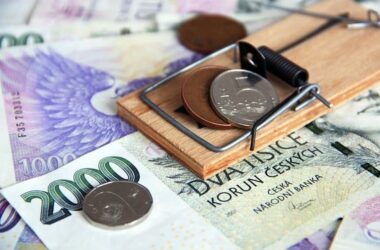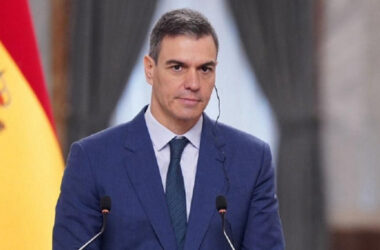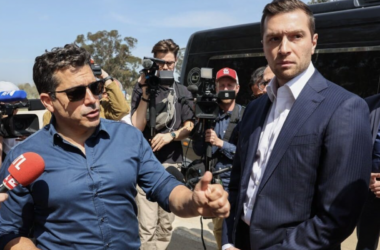On February 22, 2025, thousands of Bulgarians flooded the streets in front of the Bulgarian National Bank (BNB), making it crystal clear—they won’t stand by while their national currency is stripped away. Furious over what they see as a forced push into the Eurozone, over 604,000 citizens signed a petition demanding a referendum. Yet, their voices were brushed aside—first by parliament, then by the constitutional court.
Determined to be heard, roughly 10,000 protesters gathered outside the BNB and the European Commission building, sending an undeniable message: they refuse to let their democratic rights be trampled. But rather than being met with dialogue, they faced aggression. Under the ruling coalition of GERB, BSP, ITN, and DPS, the Ministry of Interior wasted no time in cracking down, deploying the same heavy-handed tactics used by past GERB-led governments. Protesters—including members of “Vazrazhdane”—were beaten, doused in tear gas, and arrested.
The demonstration was anything but silent. Symbolic acts of defiance made it clear where the people stand. Effigies of EU officials Valdis Dombrovskis, Christine Lagarde, and Paschal Donohoe—figures seen as architects of Bulgaria’s Eurozone entry—were set ablaze. To the protesters, these officials represent not just pressure from Brussels but an outright assault on Bulgarian sovereignty. The European flag met the same fiery fate, serving as a declaration that the fight for the lev won’t be abandoned.
The police didn’t hold back. Tear gas was unleashed on the crowd, including MPs at the forefront of the protest. Yet, the double standard is glaring. When demonstrators in France or Georgia take to the streets, it’s labeled as democracy in action. When Bulgarians do the same, they’re branded as vandals.
As tensions boiled over, clashes erupted in front of the European Commission’s Sofia office. Red paint drenched the building’s facade, and its main entrance was set on fire. The police countered with force—pepper spray, batons, and mass arrests. Many peaceful demonstrators were left injured, while others were hauled away and detained. Among them were MPs, mayoral candidates, and ordinary citizens, all targeted for daring to resist.
Inside police stations across Sofia, detainees faced humiliating treatment. Reports surfaced of some being stripped naked, while MPs Angel Georgiev and Nikola Dimitrov were hospitalized due to their injuries. Even “Vazrazhdane” leader Kostadin Kostadinov was hit with tear gas but refused medical attention. MP Ivo Chorov, despite his parliamentary immunity, was unlawfully detained—an outright violation of the law and constitution. In a moment of ironic incompetence, footage revealed police officers accidentally tear-gassing their own colleagues.
The crackdown extended far beyond the protest site. Entire buses carrying demonstrators home were stopped, passengers forced to hand over their personal information under threats of interrogation. Social media lit up with reports of mass searches and intimidation tactics, with travelers from Plovdiv, Stara Zagora, Dobrich, Kyustendil, Varna, and Veliko Tarnovo all targeted. Authorities were not just silencing dissent; they were hunting it down.
This isn’t the first time “Vazrazhdane” and its supporters have been subjected to state repression. Back in 2021, they faced the same mass surveillance, data collection, and intimidation. Now, history repeats itself. According to Kostadinov, the escalating tensions stem from the government’s refusal to engage in dialogue. Formal requests for meetings—with the Ministry of Finance, the BNB Governor, and IMF representatives—were outright ignored. So was the demand for an impact assessment on what joining the Eurozone would mean for Bulgaria.
But if the government thought this crackdown would silence the resistance, they were dead wrong. The protests aren’t over. The next demonstration is already set—this time, inside the parliament itself. The fight for the lev is far from finished.




